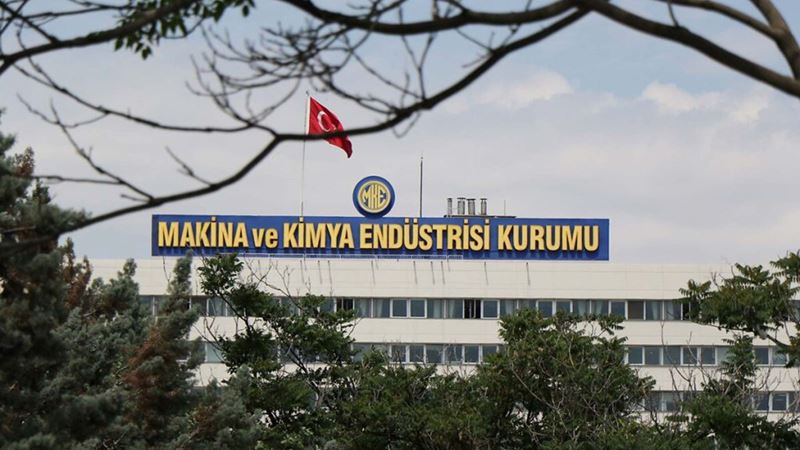According to the report of Ekonomi, Nazmi Karyağdı, Head of the Department of Revenue Administration Strategy Development and co-founder of Yeni Ekonomi Danışmanlık, stated that honest taxpayers should not be victimized because of those who make informality a habit. He said it could be melted.
Although no official figure has been announced by the public, the deferred VAT problem, which is estimated to have reached approximately 300 billion liras, has not been solved, and the real sector's receivables continue to melt away from inflation. Nazmi Karyağdı, Head of Revenue Administration Strategy Development Department and co-founder of Yeni Ekonomi Danışmanlık, said that honest taxpayers should not be victimized by those who make informality a habit regarding the deferred VAT issue. Nazmi Karyağdı, who analyzed the problem experienced by the real sector regarding the deferred VAT receivables, stated that the deferred VAT continues to be a financing burden.
“The basic principle is return, but it has not been possible since 1985.”
Pointing out that this is a structure that harms tax justice between the state and taxpayers, Karyağdı said, “While the basic principle is the refund of the transferred VAT in Value Added Tax (VAT), which is a European Union tax, Turkey has been subject to legal regulations since January 1, 1985, when it came into force.” "Refund was not possible in ," he said.
Stating that VAT entered the Turkish tax system as a revolutionary practice, Nazmi Karyağdı said, “Due to the conditions of that period, not returning the deferred VAT was excusable. However, it is not reasonable that we are still at the same point after almost 40 years. "The technological infrastructure that the Ministry of Finance did not have in 1985, strong human resources, and Certified Public Accountants and Independent Accountant Financial Advisors, who are legally assistants, are important facilitators for the refund of the deferred VAT."
“Ağbal estimated it as 300 billion lira”
Karyağdı said that the last statement regarding the amount of deferred VAT was announced as 167 billion liras in 2018 by the then Minister of Finance, Naci Ağbal, and said, "Ağbal stated that if no regulation is made for refunds, the deferred VAT stock will reach 300 billion liras after 5 years."
Karyağdı stated that the draft law, which was accepted in the commission at that time and brought to the agenda of the General Assembly, envisaged the possibility of refunding VAT that could not be eliminated with the discount and refund mechanisms that would appear after January 1, 2019, and noted that the regulation was removed from the bill at the last minute.
“Could not switch to the British model”
Saying that this caused disappointment in the business world, Nazmi Karyağdı said, “Both before the draft law and during the discussion of the bill, it was stated that the system would be switched to a system where the refund of the deferred VAT is essential, just like in England. It was stated that exemptions from VAT will be in areas such as education, health, transportation and clothing. "However, with the removal of the regulation from the draft law, the British Model in VAT was off the agenda," he said.
“There is no inflation adjustment for deferred VAT”
Pointing out that income and corporate taxpayers who keep books on a balance sheet basis will subject non-monetary assets and resources to inflation correction, Karyağdı said, “However, transferred VATs are not subject to correction. Inflation, which has been on an upward trend since 2019, has caused serious erosion in receivables expressed in TL. "The deferred VATs of the businesses, which they cannot get refunded, have also suffered serious erosion due to high inflation."
HOW IS DEFERRED VAT ARISED?
If the total value added tax (VAT to be deducted) incurred due to purchases in a taxation period is more than the total value added tax calculated due to the taxable transactions (sales) of the business, the difference is considered as VAT carried forward to subsequent periods.
“THE STOCK MUST BE MELT AND THE NEW VAT SHOULD BE REFUNDED”
Stating that a healthy cash flow is one of the most important issues for businesses, Nazmi Karyağdı said: “In a business that has a regular registration system and fulfills its tax obligations, carryover VAT may occur due to the VAT legislation. It is possible to detect taxpayers who increase their deferred VAT through unregistered or irregular transactions or even receive refunds unfairly and illegally, through effective auditing and information systems. Taxpayers who work honestly should not be punished because of taxpayers who make informality a habit. In order to establish justice in taxes, systems and processes that "separate good and bad" should be established." Karyağdı suggested that it could be used as collateral in public transactions to dissolve the VAT stock without burdening the budget, and stated that it could also be offset against some public debts. Thus, Karyağdı said that making arrangements for the payment of the new VAT that will arise the following year after the stocks are melted will ensure tax justice and said, "After the "payment" condition introduced to businesses for the reduction of the VAT declared as responsible with the regulation made by Law No. 7491, which became law at the end of last year. "It has become necessary for tax justice to pay the transferred VAT to businesses," he said.









Comments
No comment yet.